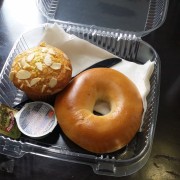The Diet Cokes Experiment
I’m going to do another little experiment. I’m going to drink ten DIET Cokes a day for 30 days and see how it affects my health.
This time it the experiment seems a bit more dangerous, since Internet searches for big Diet Coke drinkers turn up a few people who have actually died from massive Diet Coke consumption. Hmm. Maybe. I’d want to know what other health issues the dead people had. But, let’s not get bogged down on the danger of death; I’m doing this for Science. I’m doing it to advance human knowledge.
I’m also doing it because it was the top question I received after doing my first experiment, where I drank regular sugared Coke for a month: “What would happen if they had been Diet? Would you still have gained so much weight?” Regular readers of this blog will remember that I gained 23 pounds in 30 days.
Well, I doubt that I’ll gain that much weight. There just won’t be enough increase in my insulin levels to force my body to store that much fat from my normal diet. But, there are studies that show that drinking artificially sweetened sodas can still cause weight gain, and also that diet soda drinkers still have higher body weights, more Type II diabetes, and more heart disease. And there are other potential health problems.
So, what will I be looking for in this Diet Coke experiment?
1. Possible weight gain – or loss. When I drank 300 sugared Cokes, I gained 23 pounds. I don’t expect to see that weight gain again, but it is possible that I gain weight because of several of the points below. Or I could lose weight. Here’s the interesting thing: studies show that people who drink diet soda are heavier, have more heart disease, and more diabetes, than regular soda drinkers. But, also, people with health problems or weight issues are more likely to choose to drink diet sodas. So, the effect is not causal.
2. Metabolic confusion – does the body react to diet with any insulin spike, causing weight gain? Some science suggests that because the sweetness of the diet soda tells the body that calories have been ingested, the pancreas releases insulin, which would potentially cause weight gain just as when drinking sugared sodas. But how much insulin? How much weight gain? Or loss?
3. Will the sugar cause hunger and increased eating, or will I avoid hunger by avoiding insulin spikes? Will the sweetness of the diet soda satisfy my appetite, or will it make me hungry for more carbs, as eating real carbs does?
4. A false feeling of healthy eating allowing junk food eating. There is a syndrome called “Diet Coke and Big Mac and Fries.” Basically, the dieter feels free to eat other junk food because they are eating “healthy” by having the Diet Coke. Resulting in eating lots of carbs, having high insulin, and gaining weight.
5. Calcium. Diet Coke is rich in phosphorus, which can deplete bones of calcium. How much of a problem could that be for me in 30 days? With 300 Diet Cokes?
6. Caffeine. There’s a lot of caffeine in Diet Coke. And I’m drinking 10 a day. I do normally drink coffee. (Which I reduce or quit during this experiment.) Also, I didn’t notice major problems with the caffeine when I drank regular Cokes – as long as I finished drinking the Cokes before dinner, or else I would have problems falling asleep. But it could be that Diet Coke has more caffeine, or that the lack of sugar causes a stronger reaction.
7. Asparatame issues. I haven’t noticed any problems or reactions to drinking aspartame-sweetened diet beverages in the past, but this is a lot of diet soda to drink in one month, so it may be enough to cause issues. Although most studies show no problems related to ingesting aspartame, some people do have aspartame sensitivity, which can cause lethargy, headaches, and other ailments. And I’ll be consuming a lot of aspartame.
8. Other changes to my health and body chemistry. I’m having a complete blood workup and physical exam with The Doctors TV Show before I begin drinking 10 Diet Cokes a day, and then I’ll get another blood test and physical when I’m done, so we can see exactly what changes or problems have occurred by drinking 300 Diet Cokes in a month. You should see the amount of blood I gave for the tests yesterday: 7 vials of blood.
9. Changes to the flora and fauna of my gut. Good recent studies indicate that drinking diet soda cause changes to the human gut that may cause weight gain, among other things, and our knowledge of our gut bacteria is in its infancy.
So, a lot of pretty intriguing things to learn by this experiment. If you drink 10 Diet Cokes a day, you’ll want to follow along. I’ll be taking my blood pressure, body fat, body weight, and fasting blood glucose levels every day, and video blogging about how I feel. I am so excited to see what happens. It’s funny: On the one hand, I really hope to see some dramatic results from the experiment that further our knowledge about how our bodies work and how how we are affected by drinking diet soda. On the other hand, I really just hoDpe that nothing bad happens to me.
That said, let’s go. I start drinking 10 Diet Cokes a day in the morning.



